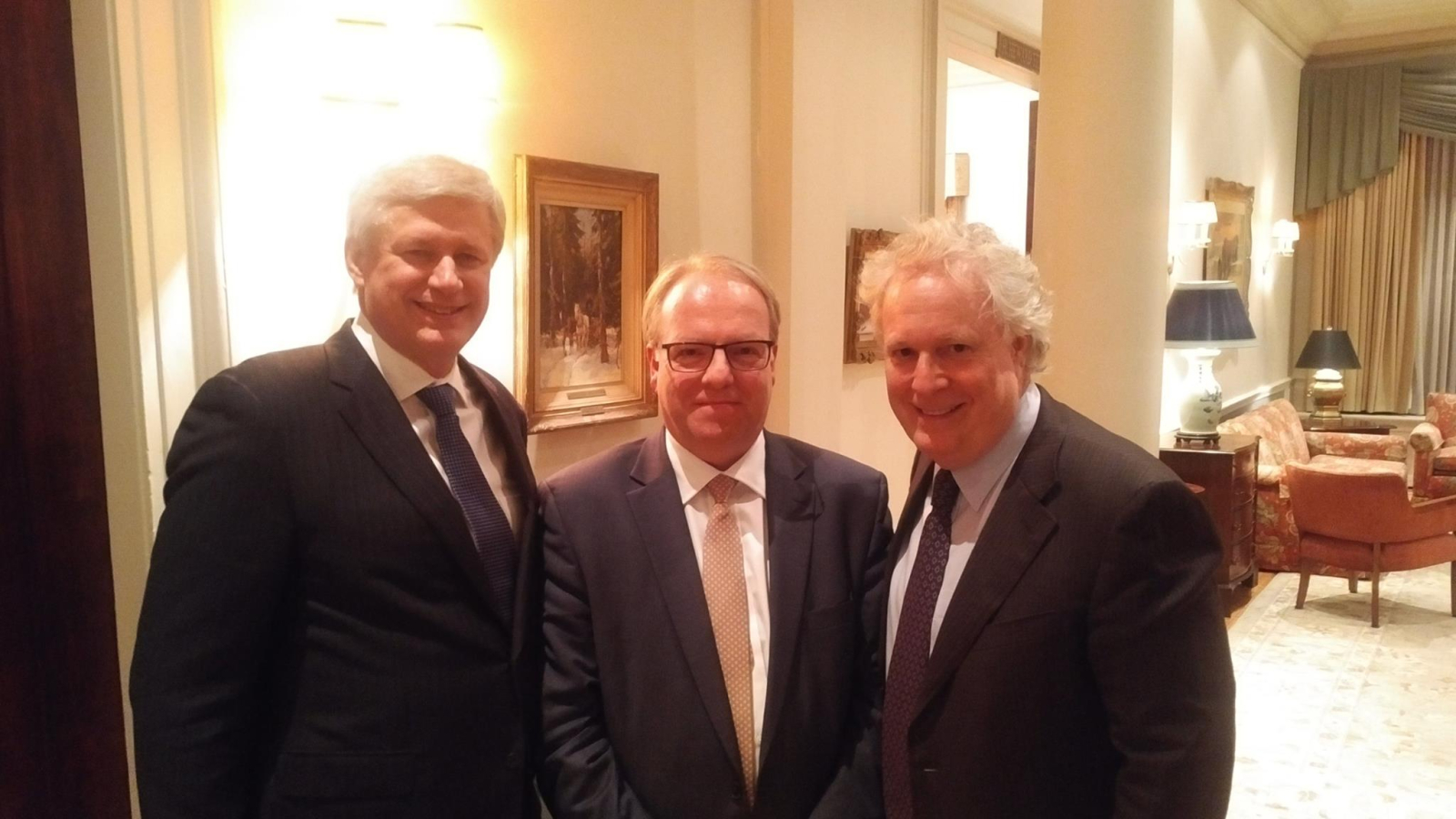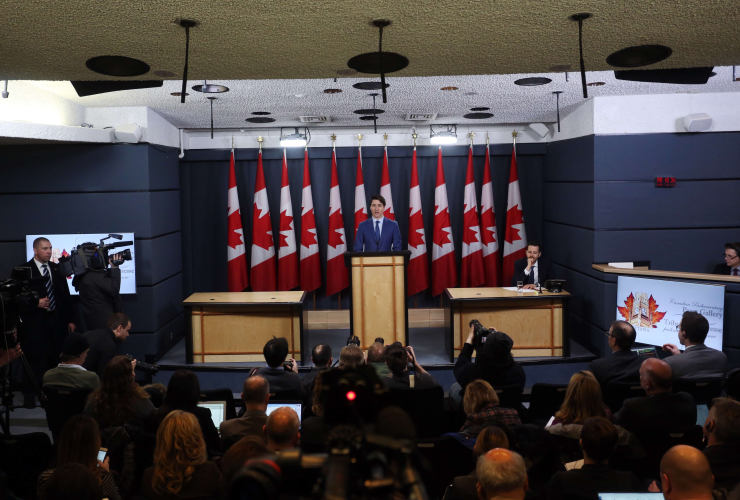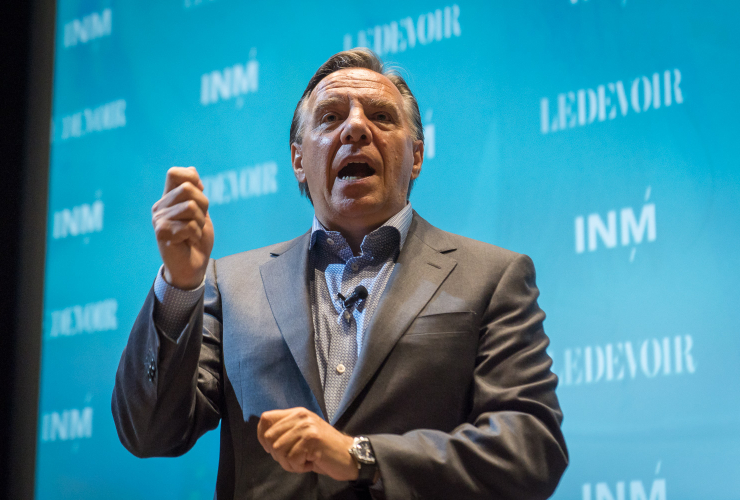François Legault and his Coalition Avenir Québec may have promised to bring change to the Quebec government, but a recent decision to hire a longtime political staffer who has moved between the Conservative and Liberal parties suggests otherwise.
Mario Lavoie started working for Legault in the first week of February. TVA reported that Lavoie came in with a focus on Canadian and international relations.
Lavoie is best known for his work with former Quebec premier Jean Charest. Often referred to as his “right hand man,” he worked alongside Charest both while he was in the Progressive Conservative party in the 1990s and when he was the Liberal premier of the province from 2003 to 2012. He has since worked as a staffer in the Harper government before moving over to lobbying, where he recently got fined by the Quebec lobbying watchdog.
The hiring of Lavoie is a clear signal that Legault hopes to influence other provincial leaders and the federal government.
Lavoie has been a registered lobbyist since May 2016, according to Quebec’s lobbyist registry, and was most recently the vice-president for Quebec at Impact Public Affairs. Lavoie's two most recent clients were the industry advocacy group Consumer Health Products Canada, and Modular Block Mining, a Vancouver-based company that, according to their website, builds “block-chain and artificial intelligence support facilities throughout Canada.”
On May 29 last year, Lavoie was found guilty of violating two sections of Quebec’s lobby legislation. He failied to renew his file within 30 days of the annual expiry. He was required to pay a fee of $500 and administrative costs.
Lavoie disclosed the infraction at the time of his hire, says Valérie Noël-Létourneau, press secretary for François Legault.
Impact’s president Huw Williams said he was not aware of the violation.

At the time, Lavoie was lobbying the Quebec government on behalf of the Canadian Finance and Leasing Association, the Canadian Vehicle Manufactures’ Association, the Quebec Association of Speech Language Pathologists and Audiologists, the National Coalition Against Contraband Tobacco and the Regroupement des cabinets de courtage d'assurance du Québec (the Quebec industry organization representing insurance brokers) as well as Modular Block Mining and Consumer Health Products Canada.
Modular Block Mining was the newest entry, having not appeared on his lobbyist registry entry made on March 26, 2018. His work for Modular Block Mining sought to convince the government and Hydro-Québec to guarantee energy for a new data centre in the province. His lobbyist entry shows that he lobbied Hydro-Quebec, several ministers and the premier.
The most recent change to his file, made on January 31, cleared all clients from the registry for the period beginning January 29. This would have been a necessary prerequisite to taking the job with Legault.
Before 2003, he worked for Charest when he was with the Progressive Conservative party, and later returned to the Conservative party in 2014 to work for then Minister of Intergovernmental Affairs Denis Lebel. At the time of this hire, Joël-Denis Bellavance argued in La Presse that Lavoie’s move to the federal Conservatives signaled that they were ramping up their Quebec election strategy in view of the 2015 election.
Noël-Létourneau did not say to which priorities Lavoie will be assigned.
Eyeing influence with other premiers, provincial governments
Hiring Lavoie signals that Legault hopes to influence relations with other provincial leaders and the federal government. With conservatives leading New Brunswick, Ontario, Manitoba, Quebec and very possibly soon Alberta, Lavoie will play a key role in helping to push the few priorities that Legault has for Canada and provincial relations. If Scheer wins the federal election, he will be well placed to convince Ottawa to move in the directions Legault would like.
And if relations don’t go well with Trudeau, Legault can be more involved in the provincial opposition that has formed against him from conservative leaders.
Recall that Legault’s first official interaction with the provincial leaders didn’t go very well. While at the Council of the Federation meeting in December, he said that there’s no social license in Quebec for pipelines. His comments became a football passed between Alberta Premier Rachel Notley and United Conservative Party Leader Jason Kenney, to show Albertans which provincial party leader was more pro-pipeline. Legault looked like he could use a little help navigating the Council of the Federation.
Will Lavoie help Legault convince his provincial counterparts to get onside his promise to reduce Quebec’s immigration targets? It’s a policy that requires support outside of Quebec to work, and in Doug Ford, Brian Palister, Scott Moe, Blaine Higgs and maybe Jason Kenney, they could form an effective block to put pressure on Trudeau’s Liberals. The real question is what, beyond immigration, is Legault hoping to push forward among his provincial counterparts? And how will Lavoie’s former lobby work influence public policy related to any of his former clients?
These men are far closer to Legault ideologically than Trudeau. Hiring someone who has moved in and out of Liberal and Conservative circles for his entire political life would seem to be a smart political move made by Legault.






Comments